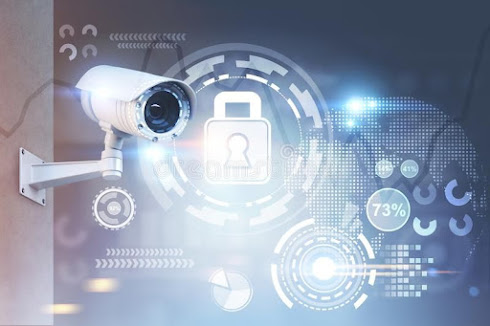What are the ethical frameworks for CCTV surveillance in public spaces?
Several ethical frameworks can be used to evaluate CCTV surveillance in public spaces. One framework is the practical approach, which assesses the benefits and harms of CCTV surveillance and weighs them against each other. Another framework is the deontological approach, which emphasizes the importance of individual rights and freedoms over the common good. A third framework is the virtue approach, which focuses on the character and intentions of the individuals involved in CCTV surveillance.
The Impact of CCTV Surveillance on Society
The impact of CCTV surveillance on society is a complex issue. On the one hand, CCTV surveillance can increase public safety and provide security. On the other hand, the indiscriminate use of CCTV cameras can lead to a lack of trust in authorities and a sense of loss of privacy. It can also lead to the normalization of surveillance and eroding civil liberties.
The Need for Transparency in the Use of CCTV Surveillance in Public Spaces
One way to address the ethical concerns surrounding CCTV surveillance in public spaces is through transparency. Authorities should be transparent about using CCTV cameras, including the purpose, location, and duration of monitoring. They should also inform the public about their rights regarding collecting and using personal data.
The Role of Public Opinion in the Use of CCTV Surveillance in Public Spaces
Public opinion can be crucial in shaping CCTV surveillance in public spaces. Authorities should engage with the public and consider their concerns when implementing CCTV systems. Public consultation and involvement ensure that CCTV surveillance is used in a way that is transparent, accountable, and respectful of individual privacy.
Limitations of CCTV Surveillance in Public Spaces
It is essential to identify the limitations of CCTV surveillance in public spaces. CCTV cameras are not a panacea for crime and cannot prevent all incidents. They also need more effectiveness in low-light conditions or areas with heavy foot traffic. Moreover, CCTV cameras can be expensive to install and maintain, requiring ongoing investment and resources.
Future of CCTV Surveillance in Public Spaces
As technology continues to evolve, the future of CCTV surveillance in public spaces will likely change. New developments in facial recognition, artificial intelligence, and other advanced technologies could revolutionize how CCTV surveillance is used. However, ensuring that these technologies are used ethically and responsibly, with appropriate safeguards to protect individual privacy and civil liberties, is important.
Conclusion
CCTV surveillance in public spaces is a complex issue that raises significant ethical concerns. While CCTV cameras can help deter crime and provide a sense of security, they also have the potential to violate individual privacy and civil liberties. CCTV surveillance should be evaluated within appropriate ethical frameworks, with transparency, public consultation, and safeguards to protect individual rights.
Are you looking for the best CCTV Camera Installation Chennai?
We “SayCure” provides the best CCTV camera installation and services.
Have any queries about the CCTV installation process?
Saycure’s expert team is here to solve all your queries.
♥ Do call 7695938051 or Fill out our Appointment form to get in touch!
♥ Follow our Social Media pages for recent updates. Facebook | Instagram




Comments
Post a Comment